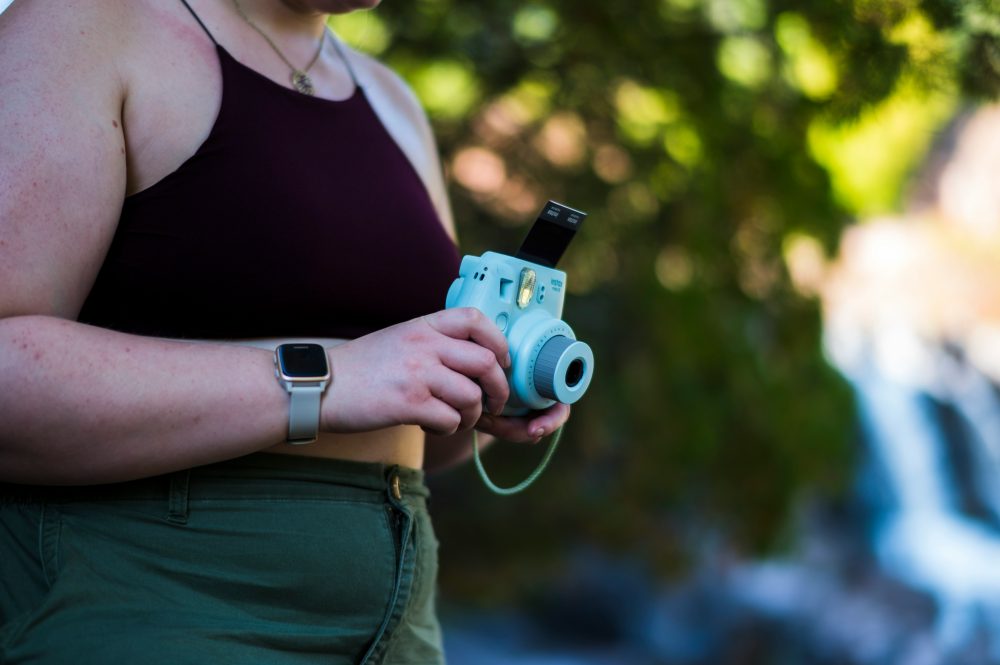The women’s wellness industry is no longer niche—it’s global, booming, and shaping the way we think about health. Valued at over $1.5 trillion and projected to grow year after year, women’s health and wellness brands have expanded far beyond vitamins and skincare. Now the women’s wellness sector includes supplements, cycle tracking apps, fertility tracking technology, health wearables, sexual wellness startups, and a wave of femtech companies disrupting old systems with new solutions.
This is where culture, commerce, and science collide.
Women want supplements they can trust, apps that fit their lifestyles, and wellness subscription brands that remove the guesswork from daily routines.
Investors are taking notice, pouring close to a billion dollars into women’s health startups in 2024 alone. From clean supplements like Ritual to femtech innovators like Clue and Ava, the landscape is evolving quickly. Today we’re talking the best women’s wellness brands, rising femtech companies, and the digital health products that are changing the way women live every day.
The Boom of Women’s Wellness Brands
Women’s wellness brands are rewriting the playbook for supplements and personal health. Ritual set the tone with transparent ingredient sourcing and clean supplements for women designed around daily needs like vitamins, prenatal health, and gut support. FLO and O Positiv made cycle-focused gummies mainstream, while The Honey Pot Company elevated plant-based feminine care into the national conversation.
What makes these brands stand out isn’t just the products—it’s the delivery models. Wellness subscription brands have become a dominant force, ensuring consistency in routines while providing flexibility to cancel or adjust. Consumers value that blend of science, personalization, and cultural relevance.
The Rise of Femtech
The term femtech represents one of the fastest-growing categories in the startup ecosystem. These companies build tools, apps, and products specifically designed for women’s health needs. Clue has become one of the most widely used cycle tracking apps, offering data insights on menstrual health. Natural Cycles was the first FDA-cleared fertility tracking technology app, while Ava Women combines wearables with cycle data to guide users through fertility and pregnancy. Maven runs the largest virtual clinic for women’s and family health, connecting patients to specialists from home.
These women’s health tech startups are solving real problems while also reshaping reproductive care. Beyond cycle management, they’re tackling maternal health, menopause, and holistic wellness—all historically underserved areas.
Wearables & Digital Health for Women
Wearables have become core to digital health, and brands are finally optimizing them for women. The Oura Ring made waves for sleep tracking, recovery insights, and cycle predictions.
Competing Oura Ring alternatives and devices like Fitbit and Whoop are now prioritizing women’s health data. This means wearables aren’t just about steps or calories anymore—they’re measuring stress, hormonal changes, and fertility indicators.
Digital women’s health is becoming the default, where every data point can inform better lifestyle choices. For athletes, working moms, or anyone balancing health with daily demands, these health tracking devices are turning into wellness companions.
Sexual Wellness Meets Tech
Sexual health has always been stigmatized, but brands like Dame, Maude, and Foria are breaking through. These sexual wellness startups combine design, safety, and discretion with powerful branding that makes conversation around sexual health more mainstream. From personal massagers to CBD-infused intimacy products, they’ve proven that sexual health belongs in the broader wellness conversation.
Tech is also merging here—apps, hormone tracking, and discreet delivery services are bridging the gap between private health needs and public conversation. For the first time, sexual health products are being marketed alongside supplements and skincare as women’s wellness products.
Holistic Health Meets Tech
Wellness isn’t just physical. Stress, sleep, and mental health play massive roles in overall wellbeing. That’s why holistic health for women now includes meditation apps, digital therapy platforms, and mindfulness tools designed for women’s mental health.
From apps that offer daily meditations to those tracking stress via wearables, the market has shifted to combine supplements with lifestyle tools. Mindfulness apps for women are now as common as vitamin subscriptions, giving consumers complete health ecosystems.
Investment & Market Growth
Behind the cultural buzz is a powerful financial reality: investors are betting big. In 2024, femtech investment soared past $1 billion, with women’s health startups funding reaching record levels. As more founders scale, unicorn valuations are becoming standard across the women’s wellness market.
For media outlets and SEO-driven content, this is also a backlink goldmine. Every brand featured here has marketing and PR budgets aimed at raising awareness. For readers, this means more innovation, more choice, and higher-quality products.
Consumer Guide: How to Choose the Right Wellness & Tech Products
With so many options, how do you choose the right products? Here’s a simple checklist:
- Supplements: Look for transparent labeling, third-party testing, and clear science.
- Apps: Prioritize data privacy and usability. Best women’s wellness apps balance personalization with discretion.
- Wearables: Make sure devices align with your lifestyle—whether you want sleep data, cycle insights, or recovery tracking.
- Products: Consider whether you want holistic bundles (supplements + apps) or single-product focus.
The goal is to find tools that improve daily life while fitting seamlessly into your routines.
FAQ: Women’s Wellness & Health Tech
What are the top women’s wellness brands in 2025?
Brands like Ritual, FLO, O Positiv, and The Honey Pot lead in supplements and feminine care, while Oura and Ava dominate health tech.
What is femtech and why is it important?
Femtech refers to technology and innovation built specifically for women’s health needs, from fertility tracking to menopause support.
Are fertility tracking apps accurate?
Apps like Natural Cycles and Clue are FDA-cleared and data-driven, but accuracy depends on consistent usage and individual health factors.
What supplements should women take daily?
Multivitamins, prenatal vitamins, and supplements for gut health and hormone balance are most common. Always consult a healthcare provider first.
What is the best cycle tracking app?
Clue and Natural Cycles are industry leaders, though Ava combines wearable insights with cycle data for deeper accuracy.
Are Oura Ring alternatives worth it?
Yes—Fitbit, Whoop, and other wearables are strong competitors, though Oura remains a leader in women’s health data.
How big is the women’s wellness industry?
Globally, women’s wellness is valued at over $1.5 trillion and growing rapidly with strong consumer demand.
Which femtech startups are backed by investors?
Ava, Clue, Maven, and Natural Cycles have all raised major funding rounds, attracting global venture capital.
Are women’s health apps safe for data privacy?
Many leading apps now focus on security, but consumers should read privacy policies closely and choose platforms with strong protections.

The future of women’s wellness is personal, tech-driven, and culturally relevant. Supplements, apps, and wearables aren’t just optional add-ons—they’re becoming part of daily routines, just like food or exercise.
By 2030, expect women’s wellness to be a cornerstone of global health, powered by innovation from femtech startups and supported by major investment.
For women out there, this means better products, more choices, and the chance to take control of health on their own terms.







